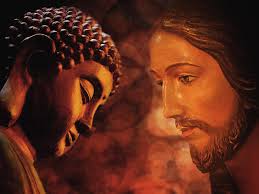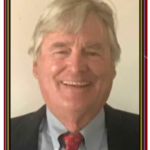On the Need to Build People Better

I have always believed the teachings of Jesus in the New Testament were quite clear. He calls for an inclusive society with a focus on nonviolent means for resolving conflict. He demonstrates a passionate concern for social and economic justice.
As a former college professor, I give the Church a C minus grade for its efforts to carry out this vision. Over the 2,000 years of its history, the Church has done a commendable job proclaiming a message of goodness and love. The Church has also succeeded in promoting private charity. The failure has come on large sociopolitical issues like its historic support of anti-Semitism, its sponsorship of the Crusades and the Spanish Inquisition, the missionary activities in the third world conducted in the nineteenth century, patriarchy, the Church’s support of slavery and apartheid, and Christian nationalism to name a few. The question is why this failure.
The place to begin in answering this important question is to examine how God works in the world. As I have indicated in several essays on this website, I am a fan of process theology. According to process theological thinking, humans are decision makers. We make decisions based on several factors—past experiences, our needs and demands of the moment, and a sense of love and goodness that floats through our awareness. That vision of love and goodness comes from God. God lures us to decide for the best interest of others, but she never coerces. Humans remain free to choose how they will respond to a particular event or demand in their life.
With this as background, the answer to the question posed in this essay jumped out at me when I read Diane Dreher’s wonderful book, The Tao of Inner Peace, for a second time last week. Dreher’s book brings to light the practical and timeless wisdom found in the Tao Te Ching to heal a diseased planet. She supplements her analysis of Taoist principles with practical exercises to help a person build self-esteem, find their center, and learn how to live in harmony with the rhythms of nature that flow from the eternal Tao. She introduces us to several “Tao people” who are working to make the world a better place. This lovely book is now available as an audiobook.
Dreher does a brilliant job applying Taoist principles to deal with the problems of modern life. She describes a society where many people are anxious, angry, depressed, and mentally exhausted. Because the mass media bombards us with a steady diet of violence, many live in chronic fear of being attacked. In a culture that champions competition and winning at any price, people have lost trust in one another. Excessive consumption results from an attempt to fill an inner emptiness. Her analysis echoes that of the Dalai Lama, who has long argued that modern life in the developed world is full of anxiety, isolation, depression, worry, and mental exhaustion.
Such conditions create egos that need defending. A defensive ego narrows one’s perspective. It makes it difficult for the person to focus on the needs of others. A perspective narrowed by fear, insecurity, lack of trust, anger, and the need to build self-esteem by winning over another can’t hear the gentle, small voice of goodness and love that comes from God. Such an ego is unable to hear the voice of God gently luring him to work for a better world. For the church to achieve greater success in carrying out the vision of Jesus, it must focus on strengthening and healing the egos of its members. Though not an expert on this subject, I would start with an adult Sunday school class that focuses on meditative practices such as centering prayer from the Catholic tradition or a loving kindness meditation from the Eastern tradition. Such practices provide techniques that help a person develop greater self-esteem which allows them to attain direct access to God. As Dreher points out, healing the world’s problems is an inside job. We must heal ourselves first.
Dr. Rick Herrick (PhD, Tulane University), a former tenured university professor and magazine editor, is the author of four published novels and two works of nonfiction. His most recent books: A Christian Foreign Policy, A Man Called Jesus and Jeff’s Journey.

